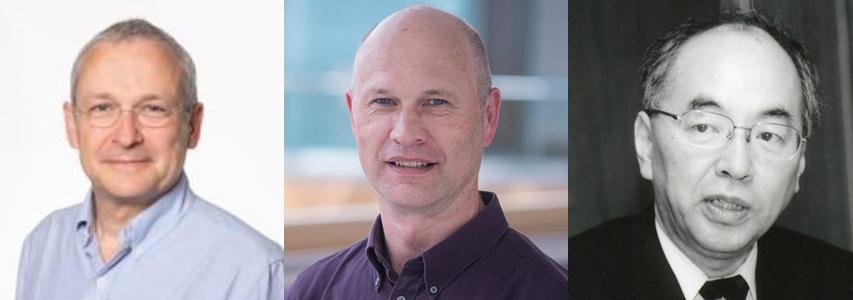Upcoming Events
ARCHIVED UK Japan Collaboration in Medical Research: Regenerative Medicine

Date
Tuesday 11 May 2021
Time
12.00 noon – 1.00pm (BST)
8.00pm – 9.00pm (JST)
Check the time in your location
Booking Details
Free – Donations Welcome
Registration essential
The activities of the Japan Society are made possible thanks to the support of its members. This event is free of charge and open to all. We realise that this is a difficult time for many people. However, if you are planning to attend and do not have a membership subscription as an individual or through your employer, please consider making a donation. You can find details of membership and how to join the Japan Society community here.
The medical response to the coronavirus pandemic and the search for a vaccine have shown us all very clearly the benefits and importance of international collaboration in medical research. This is nothing new to medical professionals who have long participated in partnerships to conduct research in parallel across the globe. For this webinar, Japan Society chairman Bill Emmott is joined by Professors Paul Riley and Georg Holländer from the new Institute of Developmental and Regenerative Medicine (IDRM) at the University of Oxford and Professor Shin’ichi Takeda of the Translational Medical Center in Tokyo to discuss regenerative medicine and its potential impact on global health.
Regenerative medicine is the "process of replacing or regenerating human cells, tissues or organs to restore or establish normal function" (Sydney Brenner, Nobel Prize Winner and Oxford Alumnus). It has the potential to cure non-communicable diseases – the cause of two-thirds of all deaths worldwide. There has been significant progress made to enable regenerative medicine, much propelled by the ground-breaking work by Professor Yamanaka at Kyoto University, winner of the 2012 Nobel Prize, on stem cells.
In December 2021, a new Institute of Developmental and Regenerative Medicine (IDRM) will open at the University of Oxford. The IDRM will use developmental biology to unlock regenerative medicine, and will build on all regenerative medicine research progress to date, including that of Professor Yamanaka. The IDRM looks forward to building networks in Japan, thanks to the extensive work taking place there on regenerative medicine.
The UK and Japan have a long history of successful scientific collaboration. How does this work in practice? What are the challenges and obstacles to international scientific research, and how are they overcome? How does an institute such as the IDRM develop working relationships with counterparts in Japan.
Professor Paul Riley is the inaugural director of the Institute of Developmental and Regenerative Medicine (IDRM), Chair of Developmental and Cell Biology and BHF Professor of Regenerative Medicine at the Department of Physiology, Anatomy and Genetics (DPAG), Oxford University. His team focus on exploiting the full regenerative potential of activated epicardial cells and lymphatic vessels to identify new therapeutic targets for repairing the hearts of patients suffering from cardiovascular disease. In 2008, Professor Riley was awarded the Outstanding Achievement Award of the European Society of Cardiology (ESC) Council on Basic Sciences for the landmark discovery that a protein called Thymosin beta-4 could mobilise dormant cells from adult epicardium to form new blood vessels in the heart, a major step towards finding a DIY mechanism to repair injury following a heart attack.
Prof. Shin'ichi Takeda is currently the honorary Director General, National Institute of Neuroscience, National Center of Neurology and Psychiatry (NCNP) in Tokyo. He initially trained as a clinical Neurologist and received a Ph.D. degree in Muscle Biology in 1981, then worked at the Pasteur Institute Paris (1987-1992). On returning to Japan, he focused his research on the development of molecular therapy of Duchenne Muscular Dystrophy (DMD), developing the drug, Viltolarsen, to skip exon 53 of the DMD gene. He has been also interested in muscle stem cells and regenerative medicine, participating in the characterization of muscle satellite cells. He then focused on induction of myogenic precursor cells from human induced Pluripotent Stem (iPS) cells and the role of the cells in regenerative medicine in DMD.
Professor Georg Holländer is the Head of the Paediatrics Department at the University of Oxford. He trained in both Paediatrics and Experimental Immunology in Switzerland and the U.S. He held academic positions at Harvard Medical School, Boston, U.S. and the University of Basel, Switzerland, before he joined the University of Oxford, UK (2010). He is interested in the development and function of the immune system in health and disease. His particular scientific focus concerns the molecular and cellular control of thymus development and function. Professor Holländer is also Director of the Botnar Research Center for Child Health (BRCCH) in Basel, Switzerland.
Explore our series of webinars with leading experts in politics, economy and media. More details on upcoming events and past webinar videos HERE.

